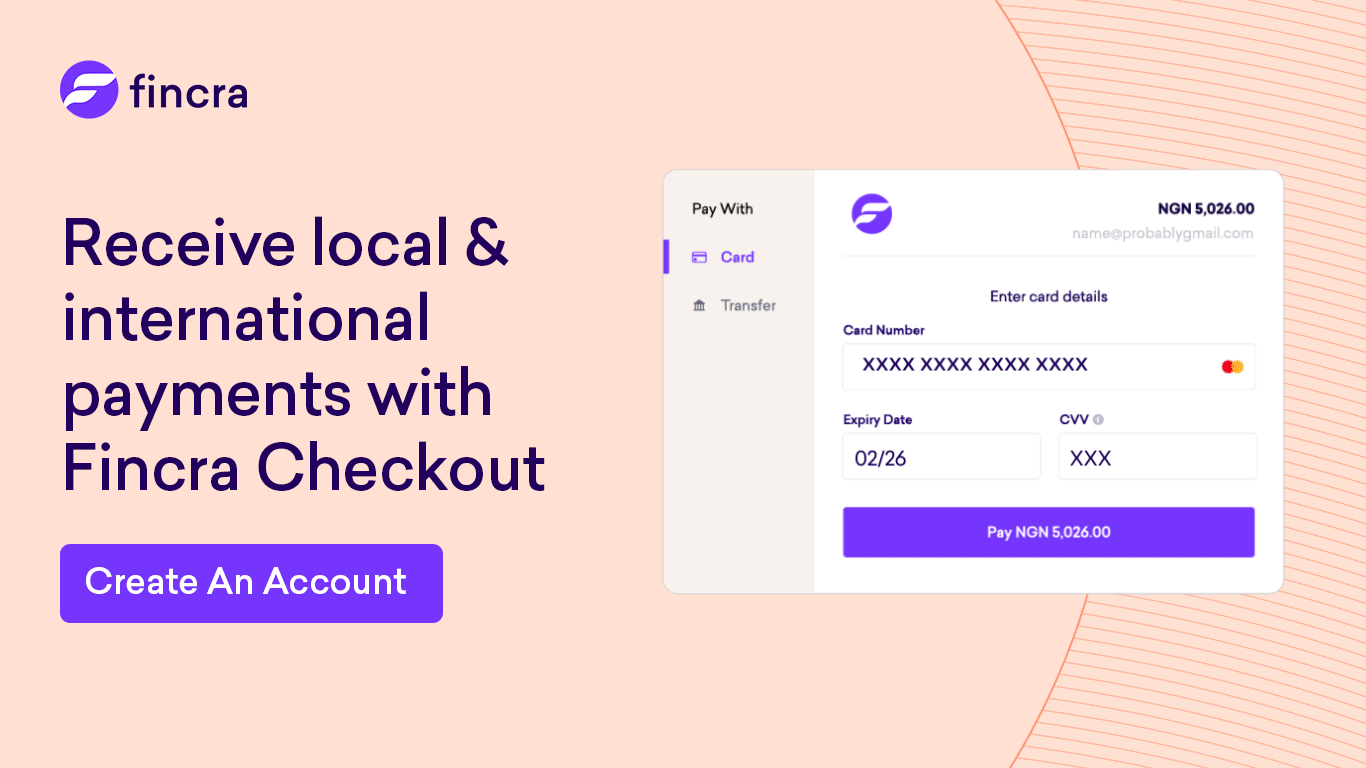Today’s Notadeepdive is 873 words, a 4-minute read. Share today’s newsletter:
If you missed last week’s newsletters, catch up here and here.
This newsletter is brought to you by Fincra and SweepSouth. Fincra provides reliable payment solutions for fintechs, online platforms and global businesses. SweepSouth Nigeria keeps your house super clean while you put your feet up, and at prices that don’t hurt your wallet!
TOGETHER WITH FINCRA
Payment collection just got easier on Fincra! Receive payments from your customers via debit/credit cards or bank transfers and settle these payments to your Fincra wallet or your bank account.). As a business, you only need to create easy-to-share payment links from the Fincra merchant portal or embed payment buttons on your online platform to gain access to Fincra Checkout; no coding is required.
After months of speculation about Presidential primaries and possible flagbearers, we finally have answers. While the emergence of the third force Presidential candidate, Peter Obi, was straightforward, the PDP and APC served prime drama before and after the primaries. In the end, Nigeria’s two major parties will now field Atiku Abubakar and Bola Ahmed Tinubu as Presidential candidates.
There are hardly ever any ideological takeaways from Nigerian politicking and this year’s primaries followed a well-worn script. Yet, stubbornly we must grasp at takeaways and here’s mine: Nigerian politics defies prediction. Nyesom Wike, the governor of Rivers state who was one of the front runners to win the Presidential ticket came a distant second. Bola Ahmed Tinubu, who for months looked certain to be trumped by Buhari’s “anointed” won the ticket by a wide margin.
So there we have it, it’s officially election campaign season; the business end of the season if you like. If you responded to that with, “so this means governance is over?” then you haven’t been paying attention. Any pretence to governance ended in January. Right now we’re ambling along, with the economy on autopilot as we focus our energies on cussing out debating people who support candidates we don’t like. With all eyes on our politics and politicians, the news cycle becomes a blur of political analysis.
One big problem with election cycles is that critical economic issues can go unnoticed. For instance, this week, conversations on fuel subsidy and Nigeria’s debt levels barely registered. And when we don’t pay attention to such critical coverage, it allows the government to avoid accountability.
So this week is about leaning into those uncomfortable economic reports that Tinubu and Atiku’s emergence has pushed to the back pages. After all, these are the economic issues both men will need to answer before we end up with yet another President who denies his campaign promises immediately after he’s elected.
Fuel Subsidy remains a big drain on resources
No one knows exactly when it happened, but fuel subsidy has become a political issue in Nigeria. For the average Nigerian, the existence of fuel subsidy is proof that no matter how wicked the Nigerian government is, they can maintain fuel prices that are the fourth cheapest in Africa. The argument for fuel subsidy is that if it is removed, it will worsen inflation. Many Nigerians are convinced that whatever we save from fuel subsidies will be stolen by the government anyway.
And so, Nigeria will spend N4 Trillion on fuel subsidy alone this year, almost four times the N1.29 Trillion It plans to spend on education. A look at the numbers for Q1 (N947.51 billion was spent on fuel subsidy) suggests that if subsidy continues as global oil prices keep rising, Nigeria could easily spend N6 Trillion on fuel subsidy in 2022.
Bottom line: what’s your preferred candidate’s view on fuel subsidy, how to put a stop to it without resulting in nationwide protests and how will he/she use the cost savings from ending subsidy?
TOGETHER WITH SWEEPSOUTH
Bad vibes on the weekend? I bind you!
We doubt that anyone has ever successfully prayed their chores away.
However, we know that booking a thoroughly vetted, reliable and excellent SweepStar from SweepSouth to handle your home cleaning and other chores is a fail-safe way to banish your chores for good.
Give yourself a break this weekend, book a SweepStar today for prices starting as low as N3,400 per booking.
Who’s going to pay back all this debt?
Nigeria’s fiscal situation is a lot like the guy who’s going to the club on a budget, gets there and promptly forgets. He gets excited and decides to buy drinks for everyone at the club. There’s only one problem: who’s going to pay for all of this when the music stops?
Asides from the N947 billion Nigeria spent on fuel subsidy in Q1 2022, it spent another N896 billion to service debts. Our debt servicing costs are expected to keep rising, thanks to the fact that the government keeps borrowing. Nigeria’s total public debt stock increased by 5.2% to N41.6 ($100 billion) trillion in Q1’22. If you find these percentages confusing, here’s something that is clear: in three months, Nigeria borrowed an additional N2.04tn. All of these figures do not include loans the Federal Government has taken from CBN.
Bottom line: Nigeria needs to have a conversation about its debt levels. With annual revenue in the N5 Trillion region, paying off these debts and raising revenues should be a big election issue.
What I’ve been reading
This news report on something that’s rare: an African fintech buying a U.S company
Politics must go on: amid a horrific killing at a church, the biggest talking point remained the APC primaries. Nigeria’s president ponders his successor
I often get asked about clear writing. This essay gives a better answer than I can muster.
Media sachetisation is real, and product pricing in emerging markets shows it
The good people at Fincra, whose sponsorship makes this newsletter possible, have gotten Approval In Principle from CBN to operate as a licensed payment service solution provider
Edited by: Jimi Osheidu
See you next week!








